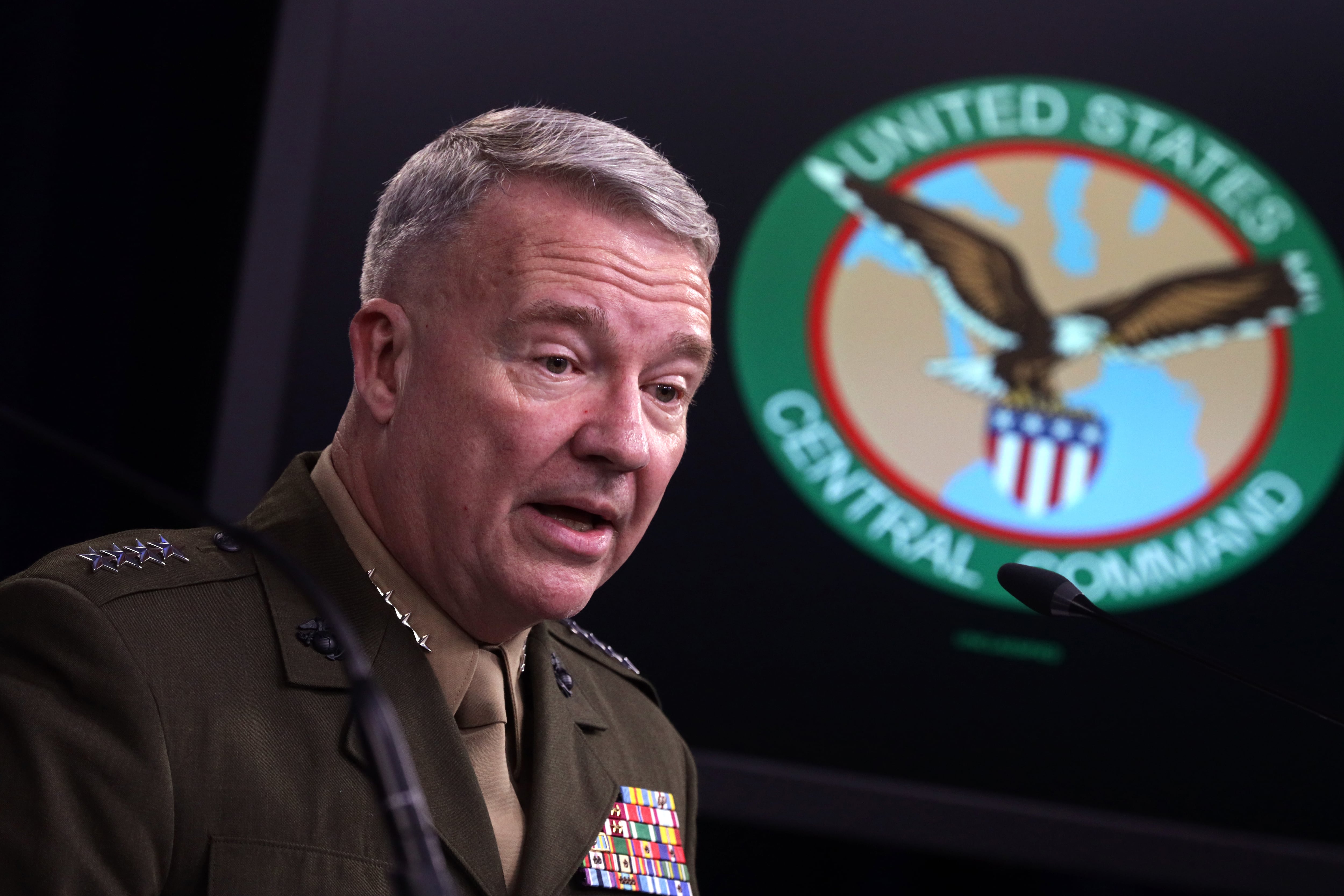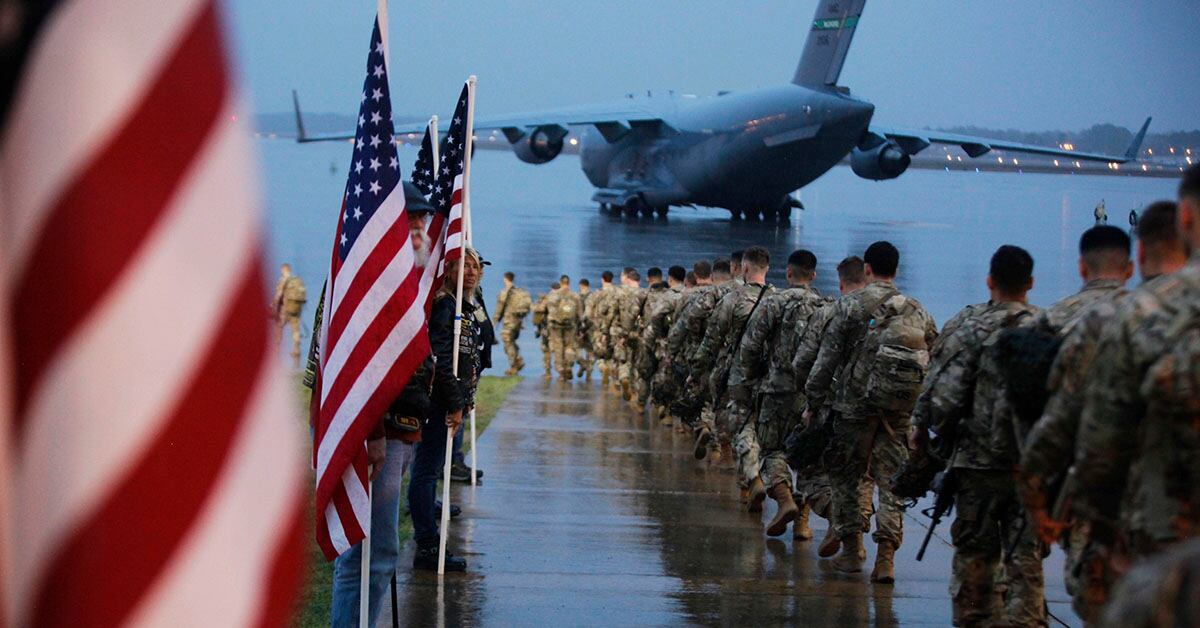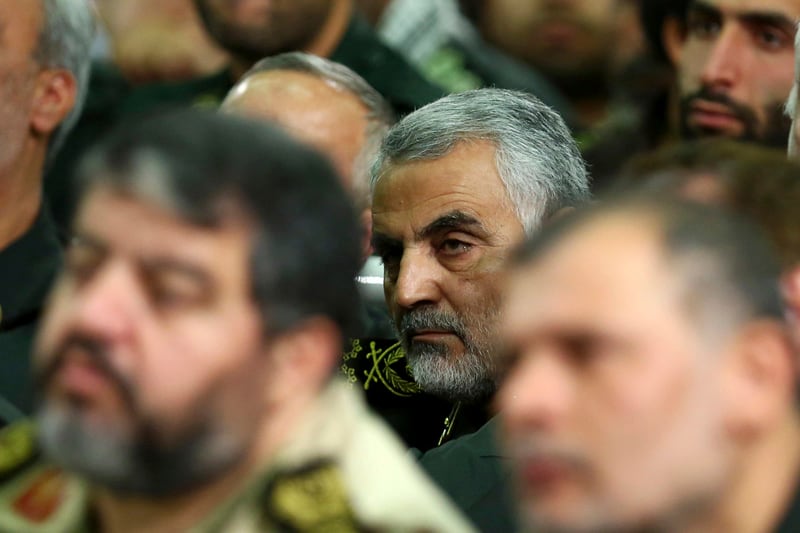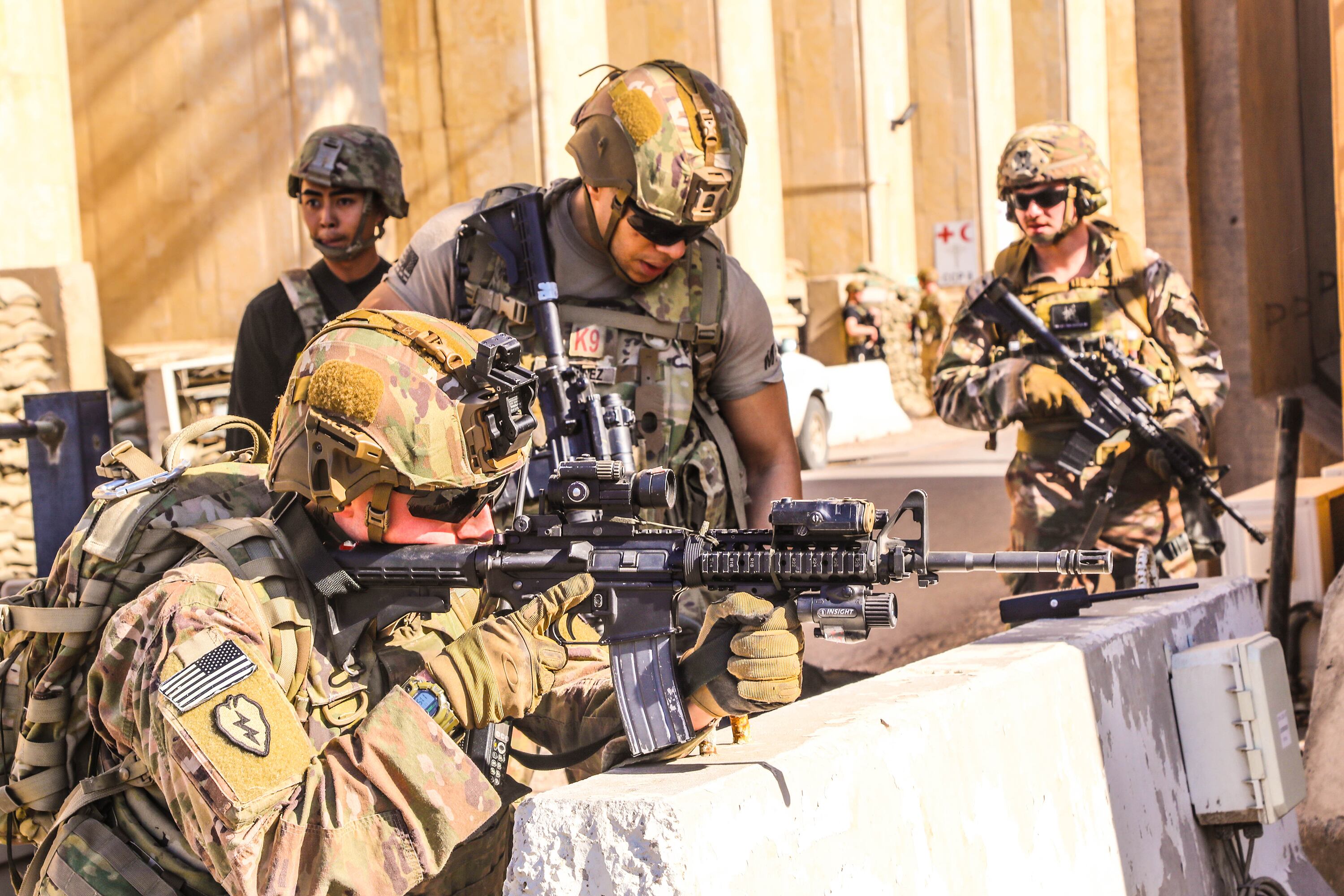Secretary of Defense Mark Esper told reporters at the Pentagon Thursday that he was not taking any options off the table following a deadly rocket attack in Iraq that killed two U.S. service members and a UK national.
But Esper said the Pentagon was focused on the group believed to have perpetrated the attacks.
U.S. officials were hesitant Thursday to point fingers at Iran, but Kataib Hezbollah, an Iran-backed Shia militia in Iraq, is suspected of carrying out Wednesday’s attack on Camp Taji that killed three and wounded more than a dozen.
Marine Gen. Kenneth F. McKenzie Jr., the commander of U.S. Central Command, told lawmakers during a Senate Armed Services Committee hearing Thursday that his command was working hard to identify the group involved in the attack where nearly 30 107mm rockets were fired at the Iraqi base housing coalition troops.
RELATED

McKenzie said the attack was “most likely” carried out by a Shia militia group — potentially once again putting Tehran in the crosshairs that could lead to a broader conflict with Iran.
“You don’t get to shoot at our bases, kill and wound Americans and get away with it,” Esper said Thursday.
Army Gen. Mark Milley, the Joint Chiefs chairman, told reporters at the Pentagon Thursday that options were on the table and awaiting final options and a decision by the president. He said the “groups that were responsible will be held accountable.”
“We have pretty good confidence we know who did this," Milley told reporters Thursday.
The 107mm rocket is a favorite weapon of choice for Iran-backed militias operating in Iraq.
A truck with a make-shift rocket launch platform was found south of the area with several Katyusha rockets, according to the Iraq security media cell.
Kataib Hezbollah, a Shia militia group in Iraq backed by Iran, is believed to be behind dozens of rocket attacks targeting Iraq bases housing coalition troops, including the deadly Dec. 27, 2019, attack against a Kirkuk installation that killed an American contractor and nearly led to a war with Iran.
Kataib Hezbollah “has functioned as a spear point for IRGC [Islamic Revolutionary Guard Corps] in Iraq. The rockets used are quite popular with Iran’s proxies,” Phillip Smyth, a research fellow with the Washington Institute, tweeted Wednesday.

Senators on Capitol Hill Thursday pressed McKenzie over the whether the White House’s maximum pressure campaign on Iran was deterring Tehran from carrying out attacks against U.S. and coalition forces in the region.
Following the Kirkuk attack, American warplanes targeted Kataib Hezbollah resulting in the group’s supporters attempting to storm the U.S. embassy in early January and the subsequent decapitation strike that killed Iran Quds Force commander Qassem Soleimani.
Iran retaliated for Soleimani’s death, firing more than a dozen ballistic missiles at two Iraqi bases housing U.S. troops on Jan. 8. No American troops were killed in the attack but more than 100 service members have suffered from traumatic brain injury.
Thousands of additional American troops were rapidly deployed to the Middle East to deter Iran from further aggression.
On Capitol Hill, where McKenzie confirmed the Pentagon is eyeing Kataib Hezbollah in the attack, the response was mixed.
RELATED

“What that means is that if I were that Iranian proxy group, I would not sleep well tonight,” said Senate Foreign Relations Committee Chairman Jim Risch, R-Idaho.
“We obviously are going to do what we have stated we’d do before. There’s going to be reprisals; I really wouldn’t want to suggest what form,” said Senate Armed Services Committee Chairman Jim Inhofe, R-Okla.
Democrats have mostly been skeptical the strike on Soleimani and the administration’s heavy troop deployments to the Mideast were achieving deterrence against Iranian proxy forces.
SASC ranking member Sen. Jack Reed said the administration ought to be certain of the origin of the attack and then appropriate response ― either striking close the source of the attack or disrupt the ability to fire rockets.
Reed noted that the U.S. killed both Soleimani, and Abu Mahdi al-Muhandis, a leader of the Iran-backed militias in Iraq, of which Kataib Hezbollah is a member. Because the attack on Camp Taji could be retaliation for Muhandis and not necessarily for Soleimani, the administration should be careful about blaming Tehran prematurely.
“There would have to be very strong evidence that this was directed, rather than this was Shia-militia inspired,” Reed said of the strike on Camp Taji, adding, “You have to make sure [the attribution] is compelling, and if you do, what’s an option that’s not going to lead to a spiral of escalation.”
McKenzie defended the maximum pressure campaign Thursday saying that he believed Iran has been deterred from carrying out state on state attacks, which he described as “contested deterrence.”
But the CENTCOM commander admitted Iran continues to use proxies across the Middle East to further their agenda. He said attacks by proxies complicate efforts to attribute attacks to Tehran.
Shawn Snow is the senior reporter for Marine Corps Times and a Marine Corps veteran.
Joe Gould was the senior Pentagon reporter for Defense News, covering the intersection of national security policy, politics and the defense industry. He had previously served as Congress reporter.
Meghann Myers is the Pentagon bureau chief at Military Times. She covers operations, policy, personnel, leadership and other issues affecting service members.









